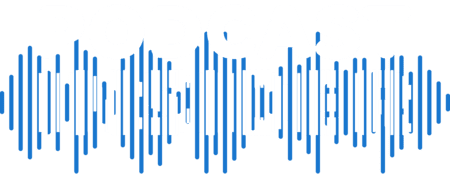Two questions preoccupy most podcasters:
- How can I grow my audience?
- How can I make money?
Here is some background on the sport of ice hockey that will help put those questions into perspective. These are not the stats usually covered on SportsCenter, but they are details about ice hockey that can make every podcaster happy that they are podcasters.
How long does it take for an ice hockey player to make money from playing hockey? If your family is into ice hockey you can start playing really early. Really, really early. If you google ‘Toddler Hockey Pants,’ the results that come back with 18 million hits. Giving parents the benefit of the doubt, a child might start playing when the official leagues begin at age 5. They do not get any money for playing that young and it costs a good deal of money — often between $680 and $3,500 — for them to play. What they get in those first few years is loads of experience and maybe some hot cocoa and ice cream from their coaches. Regardless, they still play their hearts out. Later some players have been drafted by professional ice hockey teams as young as 16, but most players at that age join something called Junior Hockey and then go on to play in college (still, not for pay). The age when they can be drafted by a minor or major professional team is flexible, the average age of a ‘young’ ice hockey team is around 21. When a player reaches the professional leagues they can, of course, expect to be paid well for playing ice hockey.
Ice Hockey Fact #1: You can assume that you have to play ice hockey for at least 11 years before you can get paid and most likely it is going to take you a lot longer.
Those who have attended youth hockey events know have seen it: little kids taking part in any endeavor is cute, but only people closely related to the children playing come to watch the game. Attendance at most youth games rarely doubles the number of players on the ice, peaking and maybe 40. After 11-plus years of playing, an ice hockey player could see attendance in the thousands if they play for the right Junior League team or go to the right college. However, most players will see crowds in the hundreds and some players will still only see their parents in the seats. When/if a player reaches the professional leagues they can, of course, expect larger audiences.
Ice Hockey Fact #2: Family and friends are going to be young players’ only fans for at least 11 years before their audience size grows, and most players never play for groups of more than a few hundred people.
These facts are well known to parents and players before they go to their first practice. Yet, the number of new sign-ups for youth ice hockey continues to grow. For them, it is part of the game.
What does this have to do with podcasting?
Individuals become podcasters planning to have thousands of listeners from their first episode, and they often expect to monetize their show from the beginning. The vast majority of podcasts do not start out that way. It can take years to grow an audience and years and years to solidify a monetization strategy (if they ever do). These new podcasters’ unrealistic expectations need to be clarified.
Podcasters display unrealistic expectations every time they post questions such as these in a podcasting group on Facebook:
“I just published my third episode, how can I monetize this thing?”
“I had 1,500 downloads last month, is that good?”
“If I subscribe to your podcast will you subscribe to mine? I want my audience to grow!”
It is important to educate new podcasters about how real podcast audience growth and monetization works. Two options to respond to those questions in the online groups or even when potential podcasters ask unrealistic questions face-to-face could be:
Response to these kinds of questions #1: Yes, it would be fun when questions based on unrealistic podcasting expectations to offer replies such as, “Did you know that it takes an ice hockey player 11 years to get paid?” or “Did you know that it takes an ice hockey player over a decade to get an audience that size?” Quippy, yes, but also accurate — podcasting does offer a quicker return than ice hockey.
Response to these kinds of questions #2: At Blubrry, we try to reach out through DMs or other means to solicit conversations about the bigger topic of expectations. These are opportunities for teachable moments with new podcasters: more in-depth conversations help podcasters more than just quick answers to their questions.
In those conversations with new podcasters, it can be helpful to pull from the new knowledge of ice hockey offered here. Podcasters can be told that when they start their podcast, they should be like a parent of a 5-year-old kid when they sign up. They should know what they are getting into. Their audience will find them over time, but it may take months or years to reach the prospective audience. And when they start their show, they should be like a kid taking to the ice for their first ice hockey practice: They should be excited, a little scared, and shouldn’t forget to work on basic skills. Tell them that if they want to be paid well for podcasting that it will be years down the road. Hopefully they will not have to wait 11 years.





